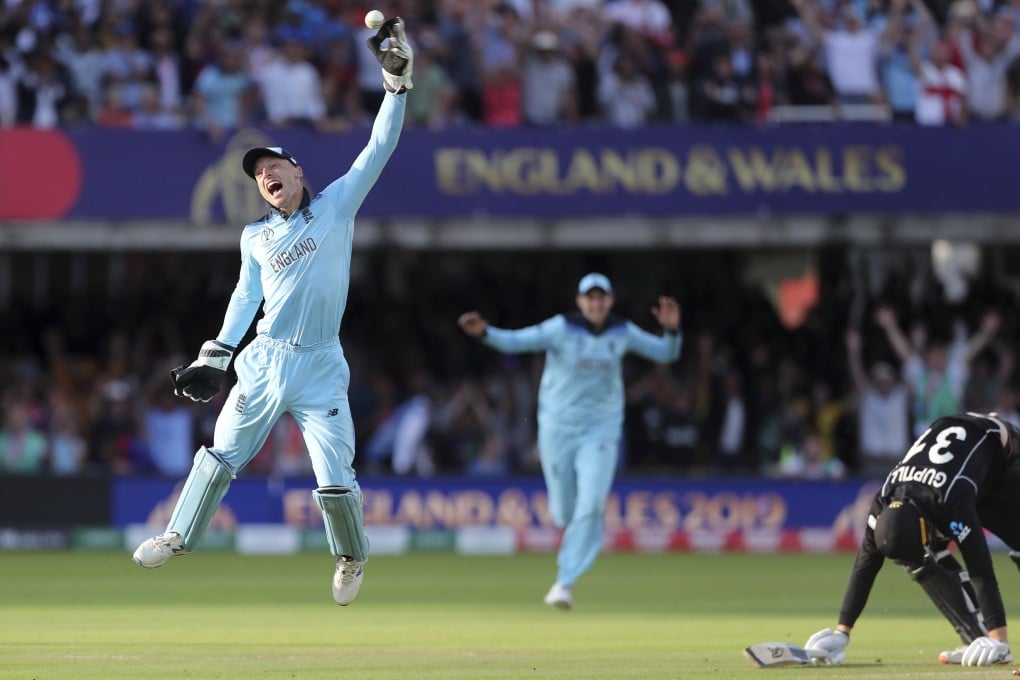Opinion | Was England’s Cricket World Cup triumph over New Zealand the luckiest in sporting history?
- The hosts rode their luck several times during a captivating finale
- New Zealand looked easy favourites to claim the Cup for most of England’s innings

Has a victorious team ever felt the benefit of so many crucial, game-defining strokes of good fortune on their way to victory?
Liverpool got awfully fortunate in the 2005 Uefa Champions League final against AC Milan. The no-look save by Jerzy Dudek deep into injury time is now one of the most defining moments of that crazy contest in Istanbul. Many of Liverpool’s heroes that night have subsequently claimed that the Pole’s save from three yards out against the normally lethal Andriy Shevchenko marked the moment they realised their club’s name was on the Coupe des Clubs Champions Europeens, even with their backs to the wall and a few minutes left to play, and the spectre of a penalty shoot-out on the horizon (Dudek, of course, went on to foil Shevchenko again in the shoot-out to seal the victory).
Steven Bradbury became something of a folk hero when he was the unexpected benefactor of a catastrophic pile-up in the 1,000m short-track speedskating final at the 2002 Salt Lake City Winter Games. Firmly ensconced at the back of the five-man field throughout the running of the gold medal race, Bradbury became the human embodiment of Aesop’s allegorical tortoise when he sauntered through the mass of piled up front-runners to make Olympic history for his country. Australia’s “last man standing” is now a cult figure in his homeland and “doing a Bradbury” has become common vernacular to Antipodeans, its meaning quite clear.
Then there’s the World Swimming Championships of 2001, when Great Britain’s 4x200m women’s team “did a Bradbury” themselves (a year before one existed) by finishing a distant third in the final, only to be elevated to gold medal honours when, firstly, the US were disqualified for jumping the start on a change, and then the victorious Australian team were relegated for a hasty celebration, jumping into the pool in jubilation before the final competitor had finished the race.
They were cruel on the vanquished, but nothing like the Black Caps were forced to endure at Lord’s. The events on Sunday were markedly more charmed for Morgan’s men.
For all the world, Kane Williamson’s men looked like they were leading a procession to their first World Cup title throughout the English innings. Having batted with discipline and poise to set England a target of 242 to win, and then excelled with the ball and in the field to stymie the hosts rampant batting attack, they were all but home before a series of outrageous rubs of the green delivered England their first World Cup triumph.
Boult bumbles on the boundary
With England running out of time, their saviour on the day, Ben Stokes, went into overdrive and began heaving for the boundary. England needed 22 runs from the last nine balls and the score stood at 220-7 as Stokes clattered one to the long-off boundary. Trent Boult, arguably New Zealand’s man of the match and one of the Black Caps’ most assured fielders, looked set to take his second catch of the over as he waited underneath Stokes’ hit. Then, after taking the catch comfortably, he opted to hold on to it rather than hand it off to nearby Martin Guptill, a decision that would prove disastrous and begin to swing the match faintly towards England. Boult had misjudged the boundary directly behind him. The catch should have resulted in the crucial, and surely match-winning, wicket of England’s last hope Stokes. Instead he stumbled on the rope and England were six runs closer to their target.

